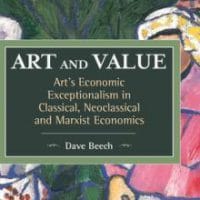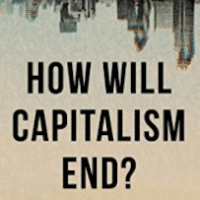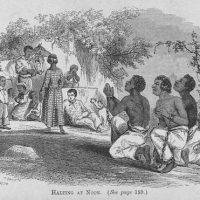-
Race traitors wanted: apply within
The term “white working class” captured much of the media analysis which sought to explain Trump’s meteoric rise and subsequent victory to the highest office in the United States. The obsession with polling and voting trends based in demographics is certainly nothing new.
-
Is equality enough?
Race/isms Book Forum is a new series aimed at bringing established and emerging voices together in conversation around recent work that critically engages our world’s racial scripts, past and present. The structure of the forum is straightforward. We invite three to four thinkers to grapple with a book, highlighting a section of it, and then provide the author(s) an opportunity to respond however they see fit.
-
The best books about colonialism and imperialism
The top 29 books, all appearing on 2 or more “Best Colonialism & Imperialism” book lists are ranked below by how many times they appear. The remaining 200+ titles, as well as the sources we used to make the list are in alphabetical order on the bottom of the page.
-
The progress of this storm
Andreas Malm’s powerful critique of current environmental philosophies puts historical materialism and cutting-edge science at the center of a call for militant action.
-
Studies in pre-capitalist modes of production
Marxism is not simply a form of anti-capitalism, but is a theory of the social and historical nature of humanity. Capitalism was understood by Marx to be a specific historical phase, in which the cycles and tendencies of human activity are qualitatively different than in previous periods, each of which had their own specificity.
-
From Marx Reloaded to Marx Returns
You made Marx Reloaded in 2011, after the financial crisis and a return of Marx in particular and of the critique of capitalism in general. What do you think today, 10 years after the crisis, is the outcome of this return?
-
Tomgram: Nomi Prins, how to set the economy on fire
There’s no way to measure just how cheery this period really is — not if you’re the CEO of a major company. Just as the World Economic Summit was opening in Davos, Switzerland, and President Donald Trump was flying in to put his mark on the moment, PwS, a global consulting firm, released its annual survey of 1,300 CEOs.
-
The kids aren’t alright
When we talk about generations, we tend to talk as if history has always been divided up into them. But the idea of distinct eras of cohorts each defined by some unique spirit is not timeless. The notion of a generation was borne of a conception of history as a machine of progress—a claim central to Enlightenment ideology
-
Ecology and value theory
Jason W Moores Capitalism in the Web of Life sets itself the challenge of locating an account of capitalist commodity production inspired by Karl Marx within the biological, chemical and geological totality we normally call nature. The ambition of the book is therefore immense. Moore proposes a method for understanding world history that shows how economic development is connected to long-wave ecological transformations. At a time when humanity faces profound and simultaneous ecological and economic crises, Moore proposes a kind of meta-theory that explains them as the outcomes of a single logic.
-
Illusions of world-ecology
Every airport bookstore features books with titles like 10 Ways to Retire Rich, 150 Places You Must Visit Before You Die, or 8 Easy Steps to a Flatter Tummy, with the numbers in very large type on their covers. They are the publishing equivalent of junk food, quickie books written to match titles that were invented by the marketing department to generate impulse purchases. The authors and publisher of A History of the World in Seven Cheap Things must have had such books in mind when they chose its title and designed its cover.
-
Can we avoid another financial crisis?
After the Global Financial Crisis, Steve Keen achieved worldwide acclaim with his book Debunking Economics (2011). It attacked the core tenets of neoclassical economics and some of its heterodox rivals. It also revealed Hyman Minsky’s post-Keynesianism as the most promising route to a scientific revolution in economics.
-
Zachary Samalin reviews Karl Marx: Greatness and Illusion by Gareth Stedman Jones
“The Marx constructed in the twentieth century bore only an incidental resemblance to the Marx who lived in the nineteenth,” Gareth Stedman Jones writes at the close of his exhaustively researched biography Karl Marx: Greatness and Illusion (p. 595). This statement can be taken as the premise underlying Stedman Jones’s account of Karl Marx’s role in the political, economic and philosophical upheavals of the nineteenth century.
-
A revolutionary voice for women’s freedom available in English for the first time
Liz Payne reviews The Woman Worker by Nadezhda K Krupskaya.
-
Resilience is not enough
In “The Other Side of Resilience” Renata Silberblatt and Eamon Tewell (Progressive City, October 2017) raise some important questions about the focus on resilience as a way to respond to floods, droughts, wildfires, and climate change. But they don’t go far enough. It’s not just that resilience is more complex than it seems and has multiple meanings, as they point out.
-
Review of Art and Value by Dr. Nizan Shaked
Art and Value: Art’s Economic Exceptionalism in Classical, Neoclassical and Marxist Economics reveals the irreconcilable differences between the Marxist economic definition of the term ‘value’ and its other uses in relation to the art object. It corrects the faulty assumption that rare or historical objects bear intrinsic value, symptomatic of capitalist worldview. Beech’s analysis of art’s value-form is critical to unpacking the double ontological condition of art as both an object of collective symbolic value and a hoard of monetary value, since the two operate in mutually exclusive spheres, yet function to constitute one another. The book can help us understand the capitalist sleight of hand that allows art to flicker between two forms of being, making profit appear as value, and value appear as significance (and vice versa), the toggling between the two facilitating the transfer of commonly held symbolic value in support of the individual accumulation of wealth.
-
The future of capitalism
Looking at the present and future system of capitalism, there is a vital crisis at the heart of it all. Democratic capitalism, starting out in the 18th century, has had its ups and downs but even Marx, Keynes, Rosa Luxemberg, and Kondratieff have all failed to establish theories to break out of the capitalist system.
-
Faith, myths, and Black Prometheus
The mythologizing thought and rhetoric that sees in human struggles the pitting of god against god is as ancient as any human storytelling. More recently Black Theologians have seen in the history of black people the need to efface a white God who condones oppression and to replace him with a black God of the oppressed. Hickman’s book provides the link that ties the ancient and the modern together.
-
Silvia Federici, ‘Caliban and the Witch’
Caliban and the Witch is a reminder that it is the task of feminists and Marxists alike to demand that the sphere of reproduction and continuing forms of colonialism be seen as key sources of value for capitalism and therefore as key sites of struggle against it.
-
Yanis Varoufakis’s self-incriminating account of the Greek Crisis (Part 3)
[box type=”note” style=”rounded”]Part 1: Proposals Doomed to Fail Part 2: Varoufakis’s questionable account of the origins of the Greek crisis and his surprising relations with the political class Part 3: How Tsípras, with Varoufakis’s aid, turned his back on Syriza’s platform [/box] Yanis Varoufakis traces his collaboration with Alexis Tsípras and his alter ego, Nikos […]
-
Yanis Varoufakis’s self-incriminating account of the Greek Crisis (Part 2)
[box type=”note” style=”rounded”] Part 1: Proposals Doomed to Fail Part 2: Varoufakis’s questionable account of the origins of the Greek crisis and his surprising relations with the political class Part 3: How Tsípras, with Varoufakis’s aid, turned his back on Syriza’s platform [/box] In his latest book Adults in the Room, Yanis Varoufakis gives us […]

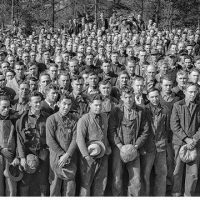

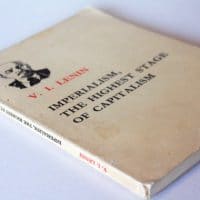

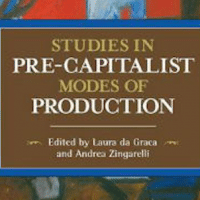

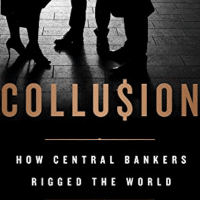

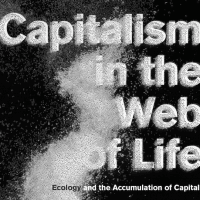


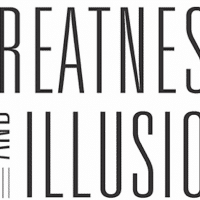
![Monument to the Unknown Woman Worker [Cork Artist Louise Walsh]](https://mronline.org/wp-content/uploads/2017/12/17718587674_edb6e21c68_b-200x200.jpg)

